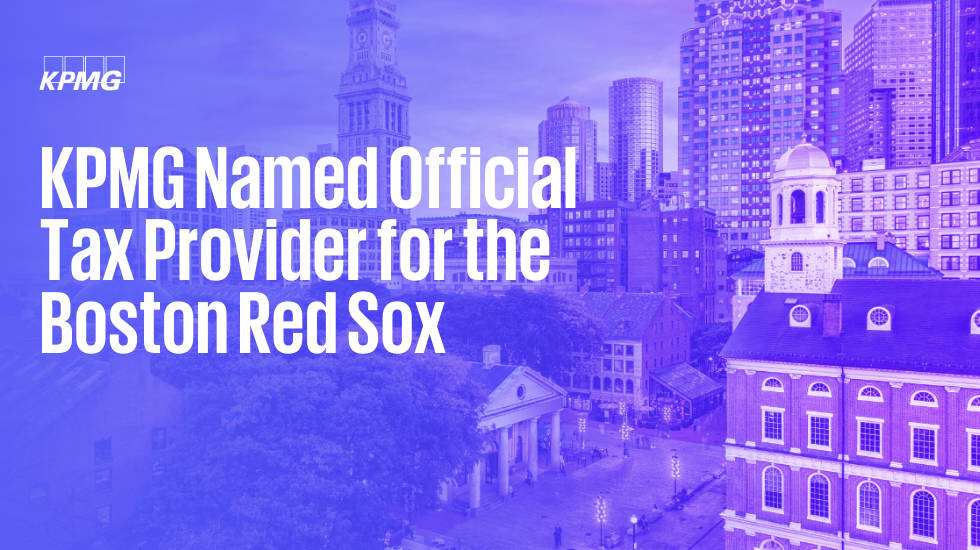
Media
Our latest press releases

The 2024 KPMG U.S. Impact Plan
The KPMG U.S. Impact Plan highlights the firm’s continued investments and accountability across four key pillars: People, Planet, Prosperity, and Principles of Governance.

The 2024 KPMG U.S. CEO Outlook Pulse Survey
CEOs are tackling risks to growth including geopolitics, cyber and structural changes such as tight labor market and new regulations, according to KPMG's latest survey.

KPMG Named 2024 Global Google Cloud Partner of the Year for DEI
Google Cloud recognized KPMG for advancing efforts across diversity and talent initiatives

KPMG Technology Simplifies Tax Season for Boston Red Sox
KPMG LLP, the U.S. audit, tax and advisory firm, has been named the Official Tax Provider for the Boston Red Sox,

KPMG Named One of Fortune Magazine’s 100 Best Companies to Work For
The Firm Celebrates Its 17th Year on the List; Honor Recognizes KPMG’s Continued Commitment to Support and Upskill Its People

Building stakeholder trust in risk transformation is a priority, but use of AI & ML is still in early stages
Building stakeholder trust in risk transformation is a priority, but use of AI & ML is still in early stages.
Explore all KPMG news
Discover recent insights
Research that demonstrates our understanding of complex business challenges faced by companies around the world.
Explore all KPMG insights
Events & Multimedia
Explore events from our social channels as well as resources designed for media professionals
Popular category topics
Explore our recent events and multimedia resources
Looking to mention KPMG on your own media channels? We have the tools needed to communicate how we're helping organizations achieve real results.
About KPMG

How we work
We bring together passionate problem-solvers, innovative technologies, and full-service capabilities to create opportunity with every insight.

Locations
KPMG offices across the United States are home to thousands of dedicated teams, providing high-quality audit, tax, and advisory services to some of the world’s largest organizations. We have deep roots across the American business landscape, with a rich history that spans more than 130 years. Our firm is proud to continue playing a prominent role in the capital markets.

Careers and culture
At KPMG, we recognize people as our most valuable asset. Our distinct skills, backgrounds, and experiences drive innovation and excellence, while our culture makes us a great place to build a thriving career.
PRESS CONTACTS
Contact KPMG Media
For all media-related inquiries and requests, please click here to contact the KPMG U.S. media relations team
Subscribe to receive the KPMG Opportunity (In)sight Newsletter
Turn insight into opportunity with unique perspectives and actionable insights addressing the burning issues atop the C-suite agenda. Delivered monthly.


